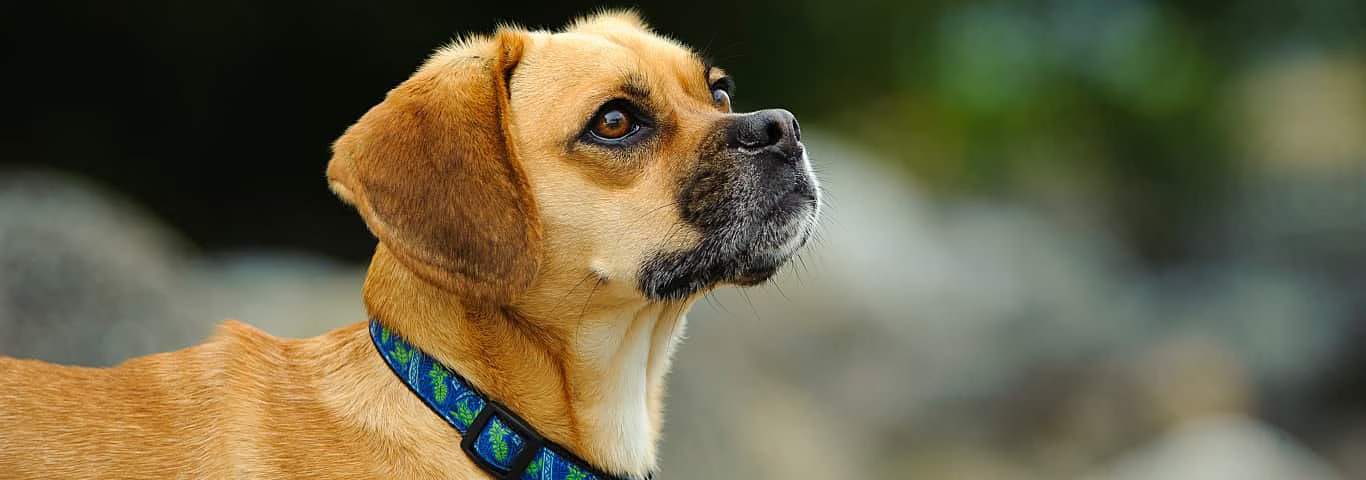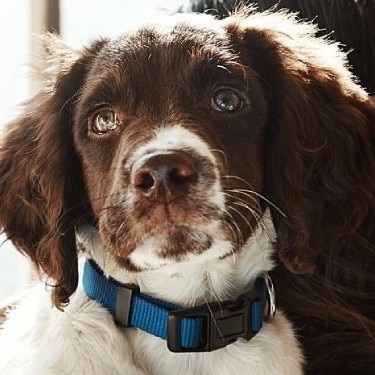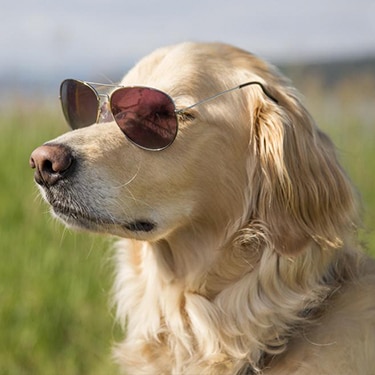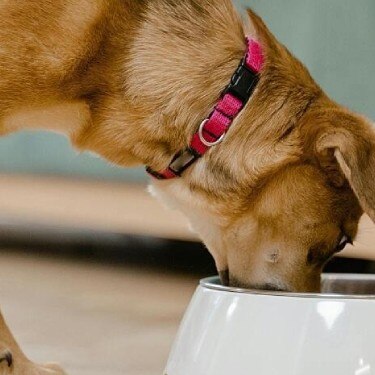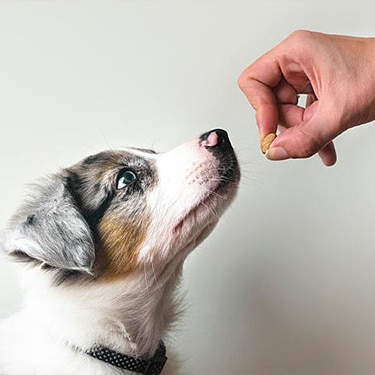Puggle puppies are typically the offspring of a male pug and a female beagle, although some breeders breed multigenerational puggles together as well. Because puggles are technically mixed-breed dogs and not a breed in their own right, there is no established breed standard, but puggle puppies generally take on characteristics of both of their parent breeds.
Adult puggles typically have the size and shape of a beagle, with a barrel-shaped torso, floppy ears, a long tapered tail and longer legs than that of a pug. Their pug heritage usually shows up in their wrinkled faces and shortened, although not flattened, noses. This combination causes puggles to bear a close resemblance to the much larger mastiff, earning them the nickname "miniature mastiff."
Puggles are double-coated, with a short, dense undercoat and a smooth outer coat. Their coloring can include any color you'd find on a pug or beagle, including black, white, tan and red. Their coats can either be a solid color or parti-colored with white. Like some pugs, puggles may feature a darkened mask around the eyes.
One goal of crossing the pug and the beagle was to create a laid-back dog that would be more content to stick close to home than your typical beagle, says Top Dog Tips. However, while some puggles possess a healthy balance of both of their parents' temperaments, others take after one parent more strongly than the other. It can be hard to predict where they'll fall on the spectrum. Some puggles may behave more like pugs — content to spend much of their time cuddling on the couch, while others might exhibit more hound-like traits such as digging, howling and wandering off in search of prey, says Dogtime.
In general, you can count on puggles to inherit personality traits that are common to both of their parent breeds, including a charming, fun-loving attitude and a sweet and loving disposition. Puggles tend to be friendly and sociable, and get along well with children and other pets, making them a great candidate for a family pet. However, they also inherit a stubborn streak from both parents which, despite high intelligence, can make them difficult to train. They need a lot of socialization from a young age and a firm, patient hand to overcome their willfulness.
Puggles are generally energetic and active dogs. They need about 30 minutes a day of exercise, which they can get by going on walks or energetic play around the house. As intelligent as they are, they may get bored easily, which can lead to behaviors like digging, chewing or excessive barking and howling if they don't get enough physical and mental stimulation. They love the company of people, but can do okay on their own as long as they get plenty of exercise and have enrichment toys to keep them entertained.
Although they enjoy going on walks and playing outside in short bursts, it's best if puggles are indoor dogs. They can do well in moderate-sized apartments with room to zoom around. And while puggles aren't considered brachycephalic like their flat-nosed pug parents, their shorter snouts can still cause respiratory issues. Therefore, not only are they prone to snoring, but they also aren't good companions for running or jogging. Special care should be taken to keep them from overheating in hot weather.
The puggle's tendency to bark at strangers makes them a decent watch dog, but they are far too friendly and easy-going to be a guard dog. They tend to get along well with other dogs and love to spend time on play dates or at the dog park. They also do well with children. Despite being active, puggles love to curl up and cuddle. Loyal and affectionate, they thrive on attention and affection.
Being double-coated, puggles tend to shed a lot and should be brushed at least once a week to rid their coat of excess fur. They can be bathed as needed, although the folds between their wrinkles should be checked regularly for dirt and debris and dried thoroughly after a bath or a plunge in the pool.
Puggles have voracious appetites, and their scenthound noses are excellent at sniffing out anything they might like to eat. You'll need to take special measures like keeping food and garbage out of reach or safely locked away with child-safety locks. If left to their own devices, puggles will quickly become overweight, so it's best to put them on a feeding schedule rather than letting them graze from their bowl throughout the day.
Puggles were first intentionally bred in the 1980s by Wisconsin breeder Wallace Havens, says PetGuide. Since then, they've become one of the most popular of the so-called designer dog breeds in the U.S. Their popularity exploded in 2005 when they set a record for the most widely-owned designer breed ever. Although breeders and enthusiasts are working to develop a breed standard in the hopes of having puggles recognized as a distinct dog breed, puggles are not currently recognized by the American Kennel Club. They are, however, recognized and registered with several national and international clubs devoted to designer breeds, including the American Canine Hybrid Club and the International Designer Canine Registry.
Adopt a pet. Change a life.
Are you prepared to adopt a pet? Use these tools to make sure you are ready for the commitment.
Adopt a pet. Change a life.
Are you prepared to adopt a pet? Use these tools to make sure you are ready for the commitment.












